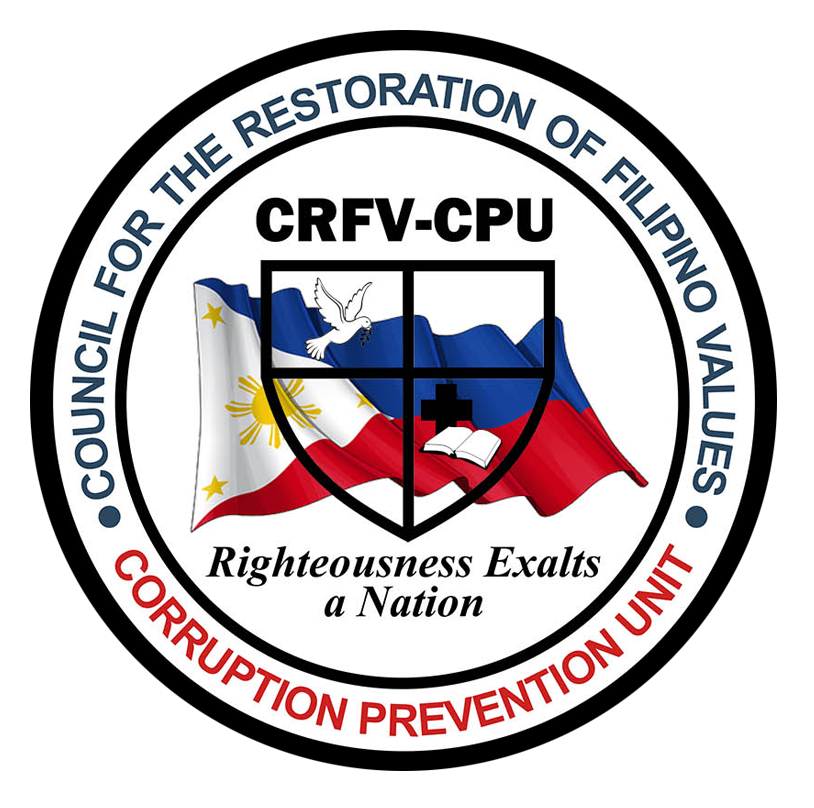|
by: Dr. Laurence C. Mascay Righteousness is essential when it comes to government service. It acts as a compass, directing the choices and deeds of individuals, especially those assigned to leadership positions. Righteousness, based on moral character and ethical behavior, is a lighthouse that illuminates the way to a just government and peaceful society.
In the Scripture, righteousness is pursuing goodness, fairness, and morality in all facets of one's life. It explores issues of conscience and character and follows laws and regulations. Maintaining what is reasonable and moral in the face of difficulties and temptations means being righteous. "Blessed are those who hunger and thirst for righteousness, for they will be filled," says the apostle Matthew. Righteousness is essential to ensure justice, equity, and honesty in government service. Righteous leaders and public servants put the welfare of their people before their interests or the interests of politics. To establish a society where every person is treated with respect and dignity, righteous public servants base their decisions on justice and compassion. Despite its significance, righteousness in governance frequently encounters obstacles and temptations. Even the most well-meaning leaders and public servants can have their integrity tested by the desire for power, the temptation to sacrifice morality for convenience, and the temptation to engage in corruption. However, at these trying times, the dedication to righteousness must not waver. It takes guts to stand up to injustice, humility to own up to your mistakes, and a commitment to putting the public interest first above everything else. People in the government and private service fulfill their obligation to advance justice, equality, and the general welfare by adopting righteousness. In implication, may you always aim to do righteous acts in the eyes of God and before people, and may the ageless wisdom of the Scriptures guide you as you go through the complexities of public service. Remember, as Dr. Laurence Mascay, one of CRVF's speakers and facilitators, says: "You may be mistreated, but live righteously, and you will emerge victoriously."
0 Comments
by: Micah A. Tecne Who doesn't love light, righteousness, and good to rule every day? We want to see good things happen in our lives. We desire to be always righteous, but the sad reality is that we live in a world full of chances to compromise. The struggle of bearing our sinful nature sinks in when we fall into sin and get attached to any form of wickedness that leads us to suffer destructive consequences, find ourselves condemned, and be regretful of our mistakes. We suffer the torture of condemnation from people around us, and worst is the soreness of our self-condemnation.
As we find guilty, people convicted of their crime receive their judgment from a court hearing, which makes us reflect on the dire effect of one's wrong choices and actions. We cannot deny that we get so lax that we are safe from judgment if we don't get caught in our wicked actions and sins. As St. Paul once said, God cannot be mocked; a man reaps what He sows, we will bear the consequences of our sins if not today; it will come in time if we fail to realize the greatness of our wicked actions and repent of our sins. We respond differently when we are caught in our sins. Some of us rationalize our wrongdoings to protect ourselves from being judged. Some hide and leave the life of a runaway and are afraid to suffer the consequences that await us. Others tend to do things to cover the sin and pretend innocent to be acquitted. Some of us acknowledge our faults but are unwilling to do anything about them. Others humbly admit wrongs and are willing to go through the restoration process and try to correct them. As we commemorate the crucifixion and resurrection of Jesus Christ, let it be a time for us to reflect the real meaning of repentance. Our sins indeed have consequences. The consequences of suffering in all aspects. We are afraid of acknowledging and admitting our faults because we don’t want to go through a painful and even long process of restoration. The process of going through a lot of pruning to make as new again. Both Judas and Peter, who were with Jesus, betrayed Him. Judas turned innocent Jesus to be imprisoned and received a lot of pay from the Pharisees, while Peter denied himself as one of Jesus' disciples. Both of them felt guilty but repented in different ways. Judas hanged himself because of guilt, while Peter went back to where he was until Jesus restored him after His resurrection and became faithful to the end of his life. Every day is a struggle between light and darkness, righteousness, and wickedness, good and bad. We struggle to be always righteous, and we find ourselves falling into sin. Because of our guilt, we tend to condemn ourselves and repent the wrong way, destroying our lives. True repentance is not doing another sin to correct the sin; it is an action. It is not only a word being uttered that we are sorry. It happens when we realize our fault, its dreadful impact on us and others, and how it displeases the Almighty God, who sees all things. Our realization will cause us to acknowledge and admit our wrongs and do something about them. We start to make the necessary changes to correct our wrongs. True repentance brings us hope that there is still a chance for us to be restored. An opportunity to turn our wicked past into a righteous present and future. It is a gift that Jesus had on His mind when He died on the cross and was resurrected. As St. Paul said, there is no condemnation for those in Christ Jesus. A psalmist once said, A broken and a contrite heart, O God, You will not despise. by: Keren May B. Busaing In this age where the plight for 'equality' is intense, the value of submissiveness is among those raised into question, and many have taken it out of proportion. For many liberal believers of equality, being submissive is a weakness and a character that needs to be eradicated in favor of independence. Many approach this social issue with zeal and boldness, all wanting to advocate the full extent of self-dependency, which, along the way, counters the discipline of being submissive. Causes like gender equality, women empowerment, social inclusion, and discrimination are a few advocacies that may wholly or slightly eradicate submissiveness. A British film director once said, "To be feminist doesn't mean you can't be submissive." In other words, our consciousness or confidence of being strong and independent isn't dwindled by the value of submissiveness. In fact, to those who are truly secure in their identity, restraining themselves from constantly asserting their positions is strength. The nature of submissiveness is not always dictated by whether we are right or wrong, and being right only sometimes means that we need to fight for it until the end. The strength in submissiveness comes when we back down and give way to the other party - for couples, the wife to her husband; for structural authority, the subordinate to their superior. Strength is only sometimes expressed by being loud and contentious. Whenever we submit, it doesn't mean that we are backing down from what is right. There are other avenues to stand up for what is right, and it begins when we make the choice (which is a strength) to preserve peace through submission. A peaceful atmosphere is perfect for the seed of righteousness to sprout. By being wise, we will eventually realize that the value of submissiveness characterized by humility is a strategy. It is not a power play where one will emerge as the winner. Being able to submit is an inner strength where an individual can demonstrate growth and maturity by seeing every situation beyond the now. It is an ability centered on security, confidence, and leadership. Submissiveness is inner warfare, and whenever we struggle and feel the desire to win, it lets us choose to be strong by being able to back down. It is always the one who can subdue his inner desires who can make the difference. It is always the one who is not particular about winning that is the real winner. On the other hand, those who are contentious are always loud and seeking to win or be above the others who are missing out. Whether we are young and must submit to the elders, a wife and must submit to the husband, or subordinates submitting to superiors, let us choose to do so and always. Saint Paul, in his letter to the Romans, said, "Let every soul be subject to the governing authorities. For there is no authority except from God, and the authorities that exist are appointed by God." This principle is not contrary to the equality, equity, dignity, inclusion, and diversity advocacies we encounter these days. Instead, it is a foundational material that is necessary to address them. By fulfilling the ways and patterns of God, these issues are resolved by the ways of God. Submissiveness is a command that paves the way for Him to directly take control of every situation we are in. It is part of the pattern to success, and every rebellion (against authorities) causes delay and sometimes eliminates God's power to take over. Let us choose to be strong by being able to submit. by: Jesus V. Sison, PTRP CRFV Deputy National Director The Almighty God created all of humanity equal. It might have been a centuries-old debate because of observed differences in socio-economic status, gender roles, and ethnic practices. One thing stands out: God allows the sun to shine on both good and evil. As it was written, "He gives His sunlight to both the evil and the good, and he sends rain on the just and the unjust alike." In addition, the Book of Genesis expresses that God created both man and woman in His image and likeness, and he equally blessed them. His image and likeness in the man and woman provided that we all have dignity and identity that must be honored and respected. Article 1 of the United Nations' Universal Declaration of Human Rights (UDHR) states that "All human beings are born free and equal in dignity and rights. They are endowed with reason and conscience and should act towards one another in a spirit of brotherhood." This has become the bedrock for all human rights documents and activities. Moreover, this has attested to the Holy Scriptures' portrayal and conception of man and woman according to God's grand design.
Here in the Philippines, equality is highly esteemed, as it was mentioned in our Constitution in the preamble and its contents. To quote, "We, the sovereign Filipino people, imploring the aid of Almighty God, to build a just and humane society, and establish a Government that shall embody our ideals and aspirations, promote the common good, conserve and develop our patrimony, and secure to ourselves and our posterity, the blessings of independence and democracy under the rule of law and a regime of truth, justice, freedom, love, equality, and peace, do ordain and promulgate this Constitution. The first word, "we," explicitly says that despite their uniqueness and differences, every Filipino calls on to the Almighty God. It denotes that as we acknowledge God, who is sovereign and above us all, we recognize that we are all equal under Him and heaven. Then, we notice that "equality" is one of the sixteen values mentioned in this exordium. Thus, it would be deemed an essential foundational element in building a moral, decorous, and altruistic society if cited. This was concretized in our AmBisyon 2040, our very own Philippine Development Plan championing a "Matatag, Maginhawa at Panatag na Buhay" (Strongly rooted, comfortable, and secured life) for every Filipino. It is a dream for all and a hope for all that equally benefits everyone. In pursuing this promising and glorious future for the nation and the people, the Constitution accentuated Social Justice and Human rights in Article XIII, Section 1. It stated that “the Congress shall give highest priority to the enactment of measures that protect and enhance the right of all the people to human dignity, reduce social, economic, and political inequalities, and remove cultural inequities by equitably diffusing wealth and political power for the common good. It encapsulates the concept of fundamental human rights and safeguarding the belief that all people are of equal value and dignity. It implies and epitomizes that no person, organization, government, and its instrumentalities should prevent someone from living with dignity and open opportunities. The state should promote laws and enactments that set the tenor for how it deals with its people and how its people regard each other. We must believe that it is meant for everyone equally, no matter what region they're from, their tribe, race, religion, culture, nationality, age, sex, preferences, beliefs, disability, sexual orientation, or intelligence. This year's women's month celebration theme is "Lipunang Patas sa Bagong Pilipinas; Kakayahan ng Kababaihan, Patutunayan!" Although it is focused on women's and girls' empowerment and provision of equal opportunities, gender equality is not a woman's issue but a human issue. It's not about women longing to be superior to men. It's all about equal rights, respect, self-worth, and access to and control of resources as part of decision-making. It's about having equal choices for our future in general. Where do we go from here? Where do we fit in? What can we do? Several suggestions were enumerated on how we could help promote equality. We must first be sensitive and humane as we become conscious of every person's rights. Let's be open to learning and listening to each other as we create a safe atmosphere and environment for everyone. We should be flexible and prepared to accustom and fine-tune our views, thoughts, perspectives, and judgments as we develop a culture of inclusivity and sensitivity. We move with the same frequency in our hearts, having the same mindset as the Sovereign God who willed all these things to exist and happen. We can make change for everyone. "We make change work" for everyone as we uphold equality. by: Atty. Carolina Lim-Gamban We are one with the nation in its whole-month celebration of Women’s development and protection as it is vital in building our nation to be matatag, maginhiwa and may panatag na buhay reaching the Ambisyon Natin 2040 and also as provided in our Constitution, recognizing the role of women in nation building.
The contribution of women is never-ending and transcends age, race, and status. Men are no longer alone in the fields of endeavor because many women are already rising to help them meet the demands of the times. It is an excellent scene in which both men and women are united in pursuing goals of worth and meaning. Much more is achieved when they collaborate and cover all areas of concern because they are one. Remembering the words in the Holy Bible saying, one can put a thousand to flight, two ten thousand; the synergy of men and women would keep us all moving from glory to glory and strength to strength. Nothing is impossible to be achieved for our nation if both men and women join forces and combine their skills, talents, and energies, and together, face the giants and challenges that come along their way. United, nothing can stop them from achieving great things for their family, for the city, and for the nation. Whenever this happens, we can utter the exact words like King David in his times, “Behold, how good and how pleasant it is for brethren to dwell together in unity!” When there is unity, there is peace. When there is unity, God pours out his blessings. As we celebrate this month dedicated to women, let us endeavor to bring forth unity in our family, workplace, community, and even the nation. Reflect on our actions or dealings that could cause discord or dissension. In the family, especially the husbands and wives, let us humble ourselves, talk about and settle the differences, and remember that the family is our primary support system. In the workplace, recognize both the efforts of men and women in every success, great or small. Also, as a man or a woman, do not add fuel to the fire by spreading rumors and unverified information that could cause co-workers to have ill feelings for each other. Instead, be a bridge that could bring them together and work for the better. In the community, give men and women equal chances to air out their suggestions or recommendations for improving or developing our barangay or city. In all, respect for one another is a must to bring forth unity. Finally, brothers and sisters, whatever is true, whatever is noble, whatever is right, whatever is pure, whatever is lovely, whatever is admirable—if anything is excellent or praiseworthy—think about such things pertaining to the men and women in our community and country. |
CRFV Winning TeamA company of men and women who have committed their lives to the cause of national transformation. Archives
July 2024
Categories
All
|
Our Services |
Our Organization |
SupportSupport Page
FAQ Terms of Use |
Copyright © 2015 | Baguio City, Philippines 2000 | 074-424-1497 | [email protected]

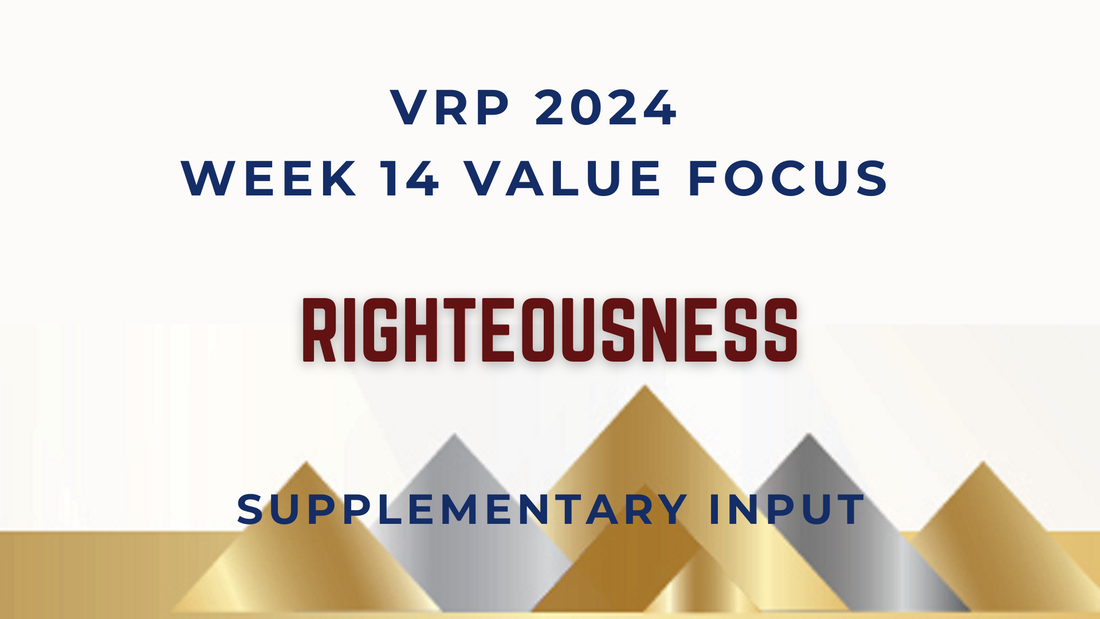
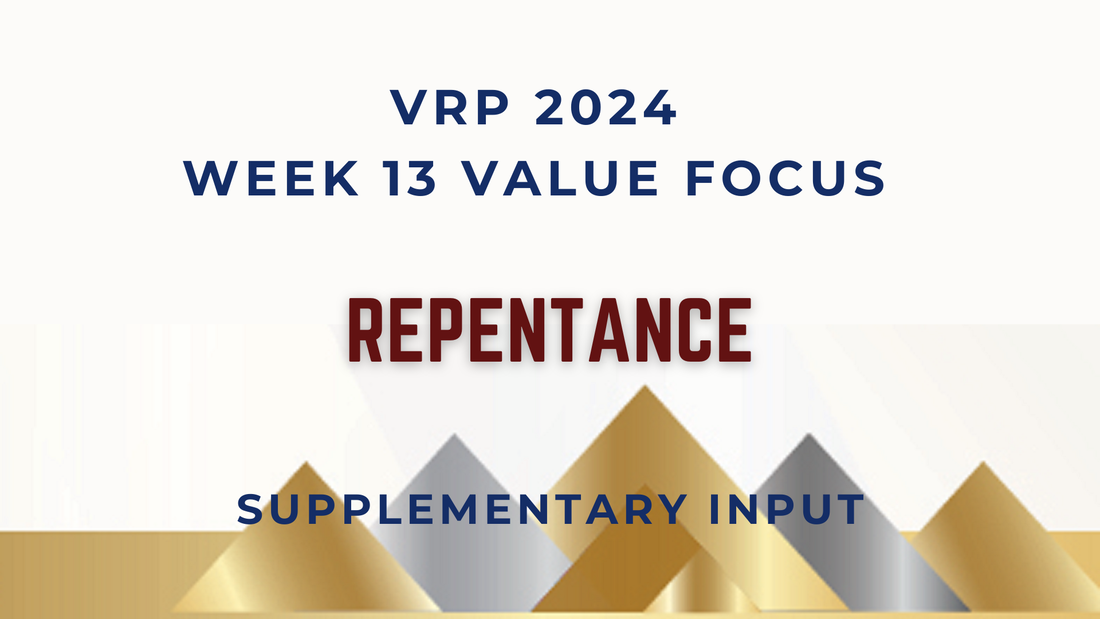
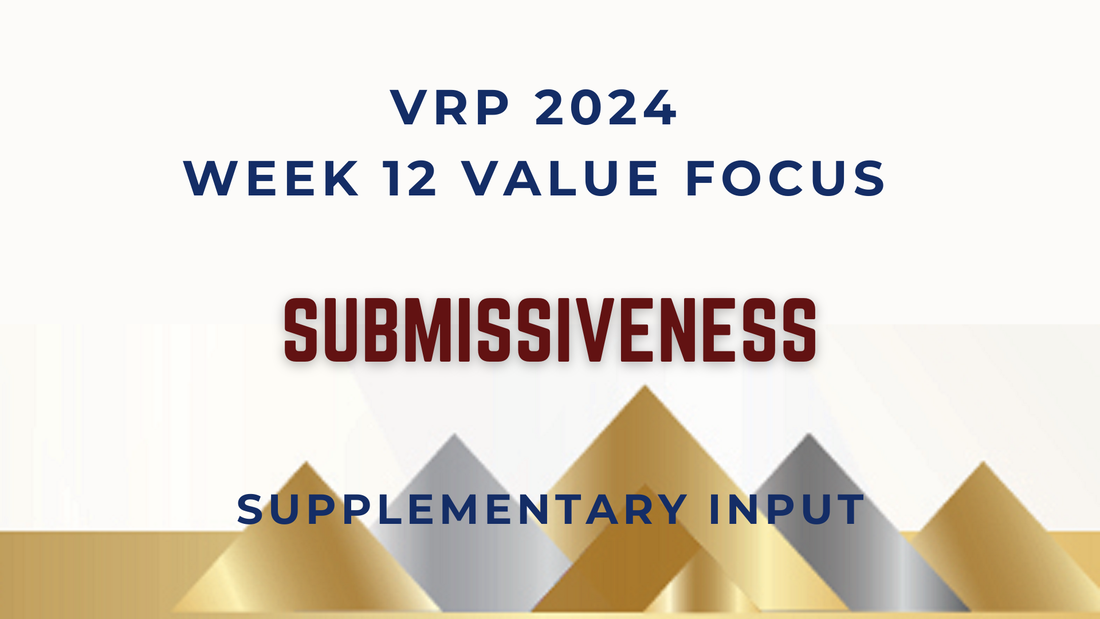
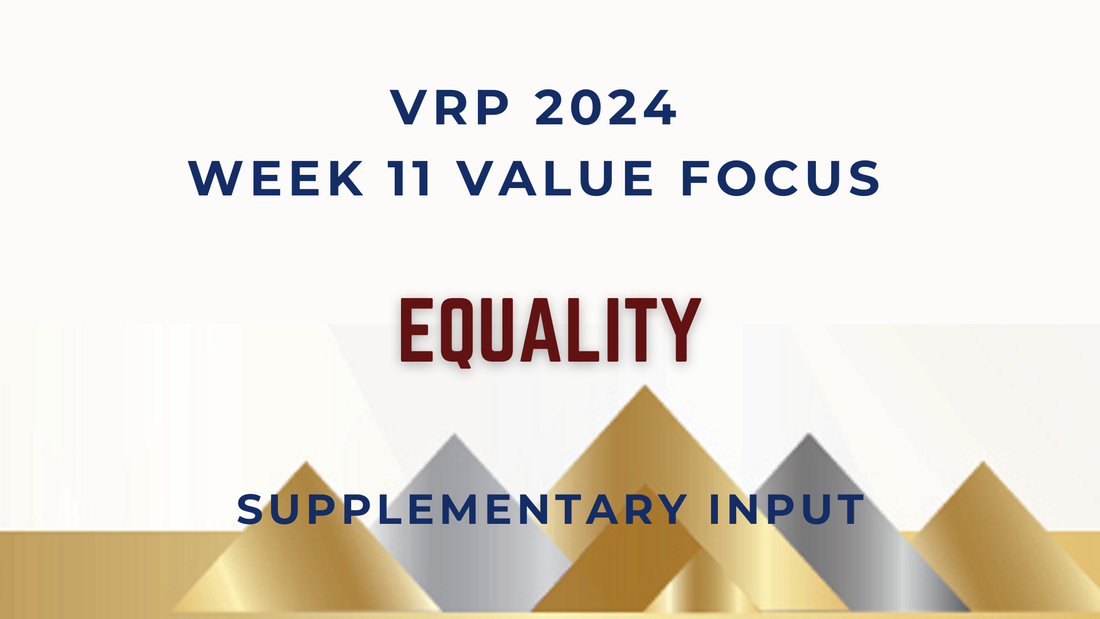
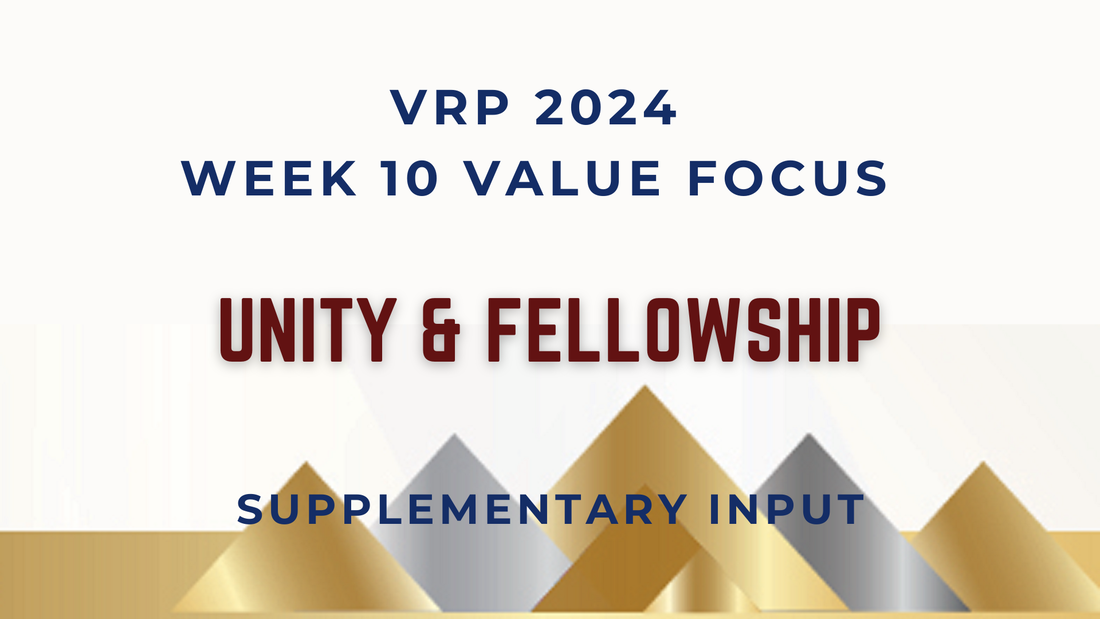
 RSS Feed
RSS Feed
